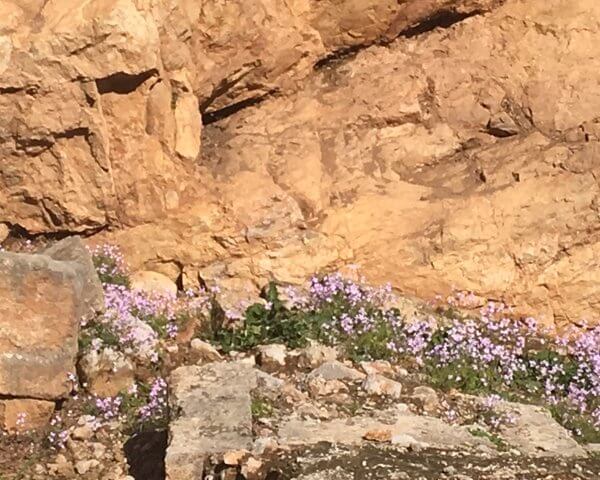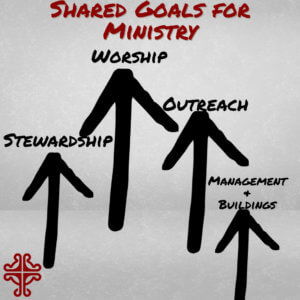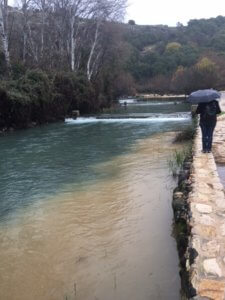
Sharing the Greatest With the Least
Well, I heard about the great party you all had last Sunday! Thanks to Susan Barnes and Posy Jackson for leading discussion, to Deb Venancio and Vickie Hicks for the special “safe distance coffee hour,” to all the other volunteers, and to all of you who made last Sunday’s Celebration of Spiritual Gifts a great success. Your vestry reflected on the spiritual gifts of our Emmanuel community yesterday in our a mini “at home” vestry retreat in the Guild Room. We used this time to plan how we will accomplish our shared goals for ministry for the coming year. What is a shared goal for ministry? Well, I’m so glad you asked!!
 In our July vestry retreat, we made a list of the different functions and activities of a worshiping community, such as stewardship, education, music, worship, pastoral care, outreach, and building and grounds. Then each of us — each of the vestry members — voted for three ranked priorities. We used postits — numbered 1, 2, and 3 in order of our individual priorities — and stuck them to our chosen priorities on the list. Then we analyzed the results:
In our July vestry retreat, we made a list of the different functions and activities of a worshiping community, such as stewardship, education, music, worship, pastoral care, outreach, and building and grounds. Then each of us — each of the vestry members — voted for three ranked priorities. We used postits — numbered 1, 2, and 3 in order of our individual priorities — and stuck them to our chosen priorities on the list. Then we analyzed the results:
Worship is Emmanuel’s highest priority.
Outreach was second,
Stewardship third, and
Management and Buildings — two separate categories — tied for fourth, so we included both. Those are our priorities for our shared ministry.
THEN, we listed all of the tasks that go into those priorities — like for worship, we need to have our volunteers lined up — lectors, intercessors, altar guild, ushers, acolyte, greeters. We need to plan whether we’ll be indoors or out, prepare the bulletin, choose, arrange for music, write the prayers, and prepare the sermon. Tasks like that go into each of our four ministry priorities. Those are our goals for our ministry priorities. Yesterday in our follow up vestry retreat, we worked to plan how each of us would pitch in to accomplish our goals.
Tasks
We listed all the tasks that make up each priority, and estimated how long those tasks take, because we have limited hours of clergy, staff, and volunteer time.
How do we allocate those hours so that they serve and advance our goals?
What tasks can only be done by the priest or staff?
Can some tasks be done by volunteers?
Does each task need to be done?
Can it be done another way?
When we have a common view of what we are trying to do and who we are trying to be, we can all enjoy a sense of accomplishment in our leadership and ministry as a community. When we have a common view of what we are trying to accomplish, we can set priorities for all of our resources — including our spiritual gifts.
It’s tough to pick what’s most important when everything we do in community is so good, and we really just want more of it! As Dave Monroe wisely said yesterday, we can have anything we want — we just can’t have everything we want. And working through all that together is part of the joy and challenge of being a community of disciples — followers of Jesus.
Jesus’ Ministry
Just look at the conversations that Jesus and the disciples have been having in Mark’s gospel over the past two weeks. In last week’s gospel, Jesus tells the disciples for the first time where their earthly ministry of preaching, teaching, and healing is headed. He will undergo great suffering, Jesus tells them. He will be rejected by his own society’s infrastructure — the elders, chief priests, and scribes. He’ll be killed, Jesus tells them, and after three days, he will rise again.
As Mark’s gospel tells us, He said all this quite openly. So openly, in fact, that Peter panics, taking Jesus aside and rebuking him. Let me say that again: Peter, Jesus’ ride along — his main guy and most faithful friend, the one who just moments before said he believed Jesus was the Messiah himself — is rebuking — (that’s biblical English for correcting sternly and chastising) — Jesus.
This is the same Peter who was so moved by Jesus’ Transfiguration on Mount Tabor that he wanted to start drawing up plans to build houses for Jesus, Moses, and Elijah up there. The same Peter who got so excited when he saw Jesus on the beach after the resurrection that he took all his clothes off and jumped in the water to swim to shore instead of riding in on the boat like everyone else. Peter stands in here — and in all of those situations — for all of us. Peter always blurts out what we are all thinking but are afraid to say. Say it isn’t so, Jesus. We just want it all to be the way we remember it. Fishing, casting out demons, healing folks. Good times.
Caesarea Philippi
 And then in today’s reading, we see all this play out again. Jesus and the disciples have walked all the way back to Capernaum from Caesarea Philippi, where they were in last week’s conversation. It’s worth mentioning that these are two very different environments Caesarea Philippi is a Roman outpost built steps from the Springs of Pan — a pagan worship site in the northern tip of the modern State of Israel, within miles of the southern borders of Lebanon and Syria. It was — and is today — a beautiful spot where the springs that form the Jordan River bubble up from the ground, clear and cool, spilling over ancient dams into the rocky stream. Jesus and the disciples were basically on a vestry retreat at the gorgeous Springs of Pan, planning their shared goals for ministry.
And then in today’s reading, we see all this play out again. Jesus and the disciples have walked all the way back to Capernaum from Caesarea Philippi, where they were in last week’s conversation. It’s worth mentioning that these are two very different environments Caesarea Philippi is a Roman outpost built steps from the Springs of Pan — a pagan worship site in the northern tip of the modern State of Israel, within miles of the southern borders of Lebanon and Syria. It was — and is today — a beautiful spot where the springs that form the Jordan River bubble up from the ground, clear and cool, spilling over ancient dams into the rocky stream. Jesus and the disciples were basically on a vestry retreat at the gorgeous Springs of Pan, planning their shared goals for ministry.
So when we catch up to Jesus and the disciples today, they’re still on retreat, but walking back down through the mountains of the Upper Galilee to Capernaum in the Lower Galilee. Capernaum is home base for Jesus’ and the disciples’ shared ministry in the Galilee. As they walk, Jesus is teaching the disciples. They avoid crowds on their travels, because Jesus is trying again to convey the tough message that got Peter so upset in Caesarea Philippi. The Son of Man is to be betrayed into human hands, and they will kill him, and three days after being killed, he will rise again.
 The disciples are still absolutely confounded by Jesus’ message, but this time, instead of rebuking Jesus — which really does seem quite daring, especially for Jesus’ main guy, Peter — the disciples are just silent. As Matthew’s gospel says, they did not understand what he was saying and were afraid to ask him. Instead, they distracted themselves with a sideline discussion, arguing among themselves as they walk about which one of them is the greatest.
The disciples are still absolutely confounded by Jesus’ message, but this time, instead of rebuking Jesus — which really does seem quite daring, especially for Jesus’ main guy, Peter — the disciples are just silent. As Matthew’s gospel says, they did not understand what he was saying and were afraid to ask him. Instead, they distracted themselves with a sideline discussion, arguing among themselves as they walk about which one of them is the greatest.
Of course Jesus knows they’re not listening, and asks what they were arguing about on the way. Matthew’s gospel doesn’t say that the disciples answer Jesus directly, but Matthew tells US that the disciples are squabbling among themselves about which one of them is the greatest. Peter rebuked Jesus in Caesarea Philippi, and now presumably Peter, as well as the other disciples, are arguing among themselves about which of them is the greatest.
What’s going on here? My sister calls these rough spots in family relations famdamily — when we are having a tough time understanding and getting along with those we are the very closest to. What Peter is wrestling with — on a grand scale — is what we all wrestle with in the community closest to our heart. We want what we love to stay the same. And Jesus’ response to his best buddy — and to us, listening in now — speaks of their familiarity and relationship. Get behind me, Satan, says Jesus to Peter — adopting Peter’s own tone with his friend. Is Jesus really calling Peter the devil? Maybe, but I don’t think so. He’s being firm and straight with this beloved member of his famdamily.
And in today’s gospel, when they’ve been distracting themselves from the real challenges of living together in community with office staffing and leadership issues — which one is the greatest — Jesus’ message is firm and tender again. He reminds us that our focus should be on the least of these — the children — and not the greatest of these, no matter which, OR how great, one of us might be.
Jesus knew that this was hard, and that’s why he taught tenderly and emphatically. Into a conversation about which was greatest, he introduced and embraced a child. And your vestry is striving to live by Jesus’ example as we imagine and dream our goals for shared ministry in this beloved community of Emmanuel, not beginning with the business and administrative end of the discussion, but with worship, outreach, and stewardship — embracing the least of these. Amen
